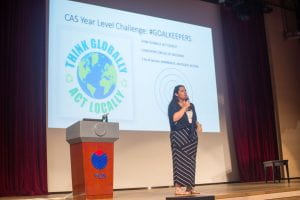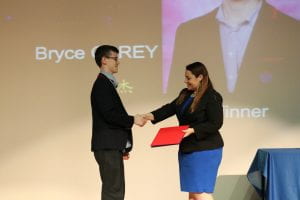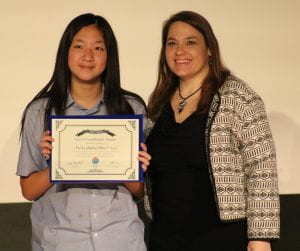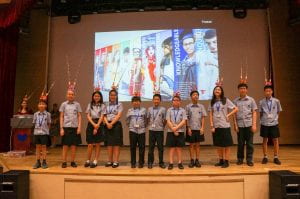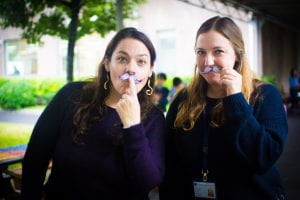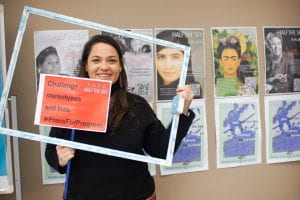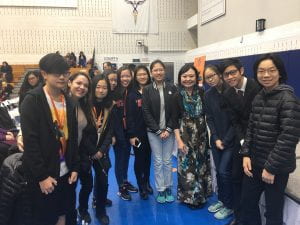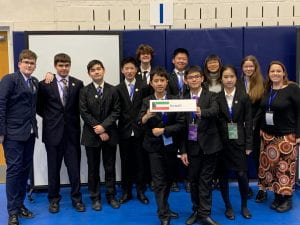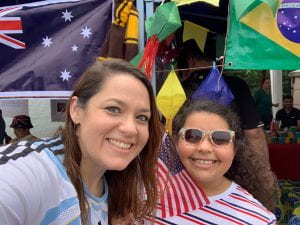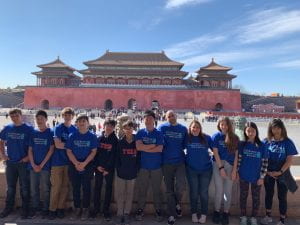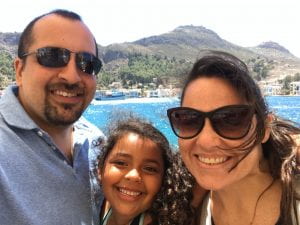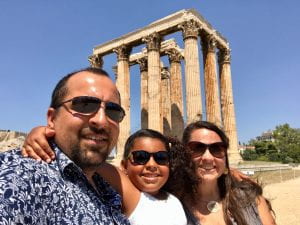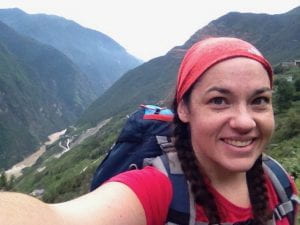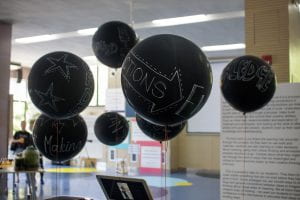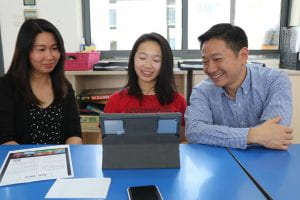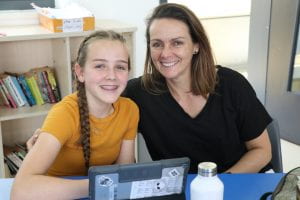Written by John McEnhill, Primary Coordinator
What is your role in the School?
I’m currently the Lower Secondary Coordinator. I’m tasked with helping ensure that students in the crucial middle years, from Year 7-9, get the learning opportunities, along with the pastoral and academic support they need, to become caring and effective learners. I also still get to be in the classroom a bit, and teach Spanish and Humanities.
You have an interesting and international background – tell us a bit about that?
Originally from the United States, I grew up in Buenos Aires, Argentina attending local schools until high school, ultimately graduating from Lincoln (the American International School there) before leaving to attend university at Dartmouth College in the United States. Like most of our students, I’m a proud TCK (third-culture-kid) now grown up and raising another TCK in our international family. My husband, Performing Arts Director, Mr. Nick Adgemis, is Australian, of Greek heritage, and our daughter is Brazilian. I’ve always felt most comfortable in an international multi-cultural environment and have enjoyed traveling to, studying, and living in various countries.
Tell us about your different language skills?
Although my poor Mandarin is an embarrassment on this front, I love learning languages and am fluent in English, Spanish, Portuguese and French and studied Japanese and German. I grew up speaking English and Spanish interchangeably and consider both my “first languages”. I really appreciate the commitment YCIS has to helping our students gain not just linguistic fluency, but intercultural competency in both Chinese and English from K2 all the way through to Year 13. With YCIS’s recent commitment to also promoting other world languages, I was very excited to be part of bringing Spanish to the YCIS curriculum in Lower Secondary.
You have been heavily involved with Model United Nations (MUN). Explain what this is and why you think this is so important?
I traveled to Caracas, Venezuela for my first MUN conference when I was a Year 11 student in 1992. As a 15-year-old, MUN was an educational experience like no other. I read more, thought deeper, wrote smarter and spoke better than I had ever had before. The skills I developed in research, critical thinking and argumentation, writing, public speaking, debating, collaboration and consensus-building and more, far exceeded what I was able to learn in any classroom and made my learning when I went back to school so much more relevant. I continued to participate actively in MUN through high school and at university. As an educator, I’m committed to promoting MUN because its an authentic audience and the focus on tackling complex real-world problems provides our students with meaningful opportunities to really engage as learners. This is what being “committed to global education” is all about.
MUN also gives our students a chance to be part of an amazing community as they attend conferences with top students from schools all over the world and try to come up with solutions to pressing global issues. It is incredible to be part of this network of committed global citizens.
You have previously worked at other international schools in Shanghai. What do you think makes YCIS special/unique?
I like that YCIS is truly international and its school culture and curriculum are grounded in the global community it serves and its own context in Shanghai, China—it is not trying to be British or American outside of those contexts which I always felt was a bit contrived. It’s commitment to excellence in both English and Chinese all the way through to Secondary is important to me and it’s results are incredible. I also love its deep commitment to holistic education—I realize most international schools do this, but at YCIS this commitment extends beyond CCAs and other learning opportunities and is embedded in its character education, culture, and care for each student.
You work in the same school as your husband, and your daughter is in the Primary. How do you find that works for your family?
An international school like YCIS is more than just a school or a workplace, it is our community and a family away from home. With so many different events in school life, especially with my husband involved in Performing Arts, it would be difficult to participate wholly in school life as a family if we weren’t in the same school. As an educator, it is great to have your own child in the school you teach at because it means you become acutely aware of any issues or shortcomings that should be addressed and you are that much more invested in ensuring this is the best possible learning environment for your own child and all children. That being said, with work and school life fully intertwined and shared in our family, it is easy to let this become all-consuming, so we have to place boundaries at home that help us leave work/school behind and enjoy necessary restorative mental “time off.”
You have been heavily involved in promoting the UN Sustainable Development Goals in Secondary this year; why do you think they are so important?
The UN Sustainable Development Goals (SDGs) are the world’s global goals for a better future within the next decade. They are ambitious and they should matter to each of us if we want to have a future that is equitable, that promotes education, human rights, and the dignity of all individuals, respects diversity, and that is sustainable. Education is a transformative force. As a global citizen and as an educator, harnessing this force and using the power of education to help our students asunderstand the issues and work together to come up with solutions is key.
SDGs really should be a driving force at the heart of what we do as educators. Why learn Mathematics or Science if we can’t use it to find innovative ways to build sustainable cities or ensure we all have water and other natural resources, or to find more efficient, cleaner energy sources? Why study History, Economics, Geography, or Literature if it can’t help us achieve peace, combat poverty, address injustices or develop stronger, more just institutions?
We recently had a fantastic and revamped Secondary SLC. Why are SLCs important and what changes you have made?
Reflection is a critical part of the learning process. For Lower Secondary students, our Student Led Conferences are an important part of their learning journey as they reflect about their learning this year and conduct 25-minute conferences with their parents. Through reflecting on their learning, students give their learning new meaning. External sharing of reflections multiplies the learning for each individual and helps both parents and students learn a little more about themselves as learners, strengthening the school-home partnership.
Our goal with SLCs this year was to really engage students and parents in a broader conversation about learning that went beyond their performance in the classroom and looked at how we learn and what tools their children are using to deepen their learning in the classroom and beyond. To this end, students and parents had the chance to participate in various workshops together on topics ranging from ‘iPads and Learning’ to ‘Study Strategies to Exam Success.’ The Cafeteria at Century Park Campus was also transformed into an interactive gallery, becoming the Creative Hub. To help parents and students focus on the next steps in their journey, we also hosted a university guidance panel with expert panelists from top universities like Duke, NYU, Wash U, Dartmouth, Stanford, and Harvard sharing advice on how to help our students maximize their resumé in the middle years for success in university placement.
